Located at the heart of Kampar Peninsula, the Eco-Research Camp is RER’s operational base and a Tropical Peatland Science Hub for further study of this important ecosystem.
Eco-Research Camp is located 140km southwest of Singapore, on the east coast of Sumatra in Riau Province. The 32ha site is a former acacia fiber plantation adjacent to the Serkap River High Conservation Value Forest on the Kampar Peninsula.
Tropical Peatland Science Hub
Tropical peat swamps are among the least-studied ecosystems in the world because they are so hard to access.
The Eco-Research Camp provides a learning ground for scientists, academics and conservationists to learn about this unique ecosystem, and to experience our restoration efforts first hand.
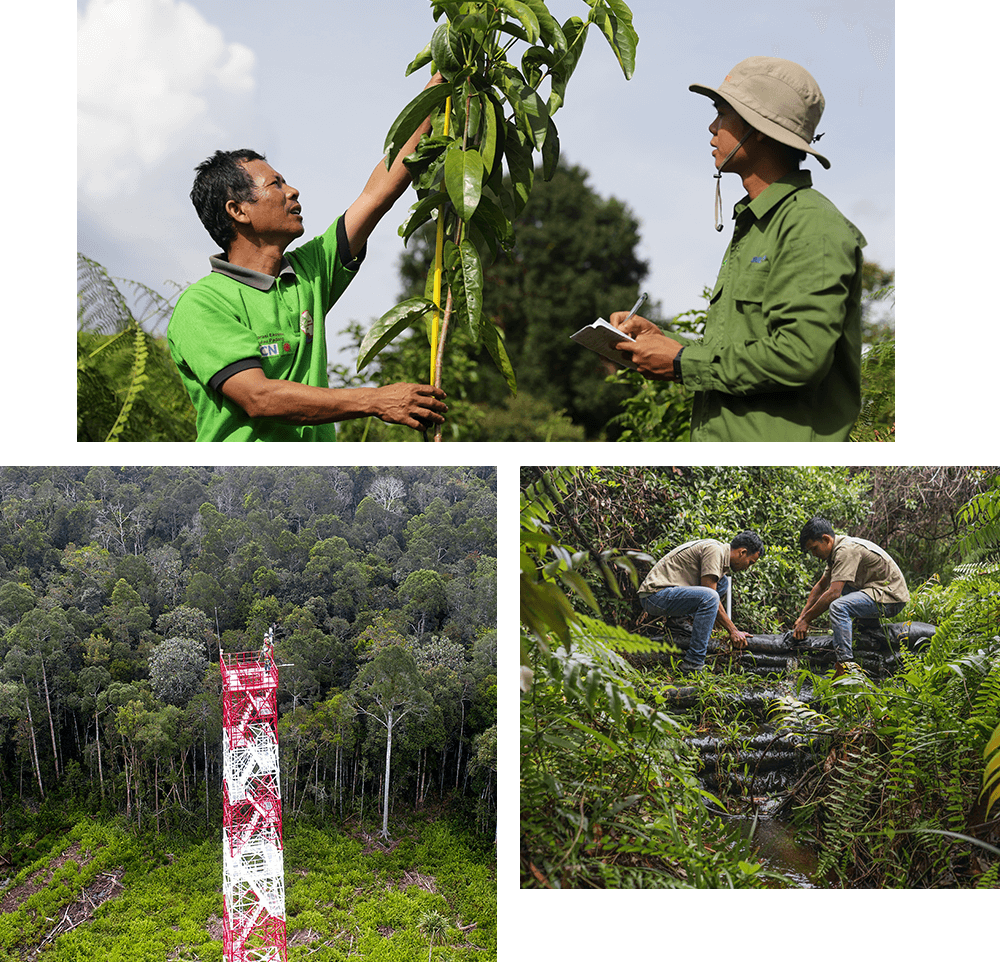
Restoration Activities
At the Eco-Research Camp, visitors have the opportunity to learn more about RER’s ecosystem restoration activities.
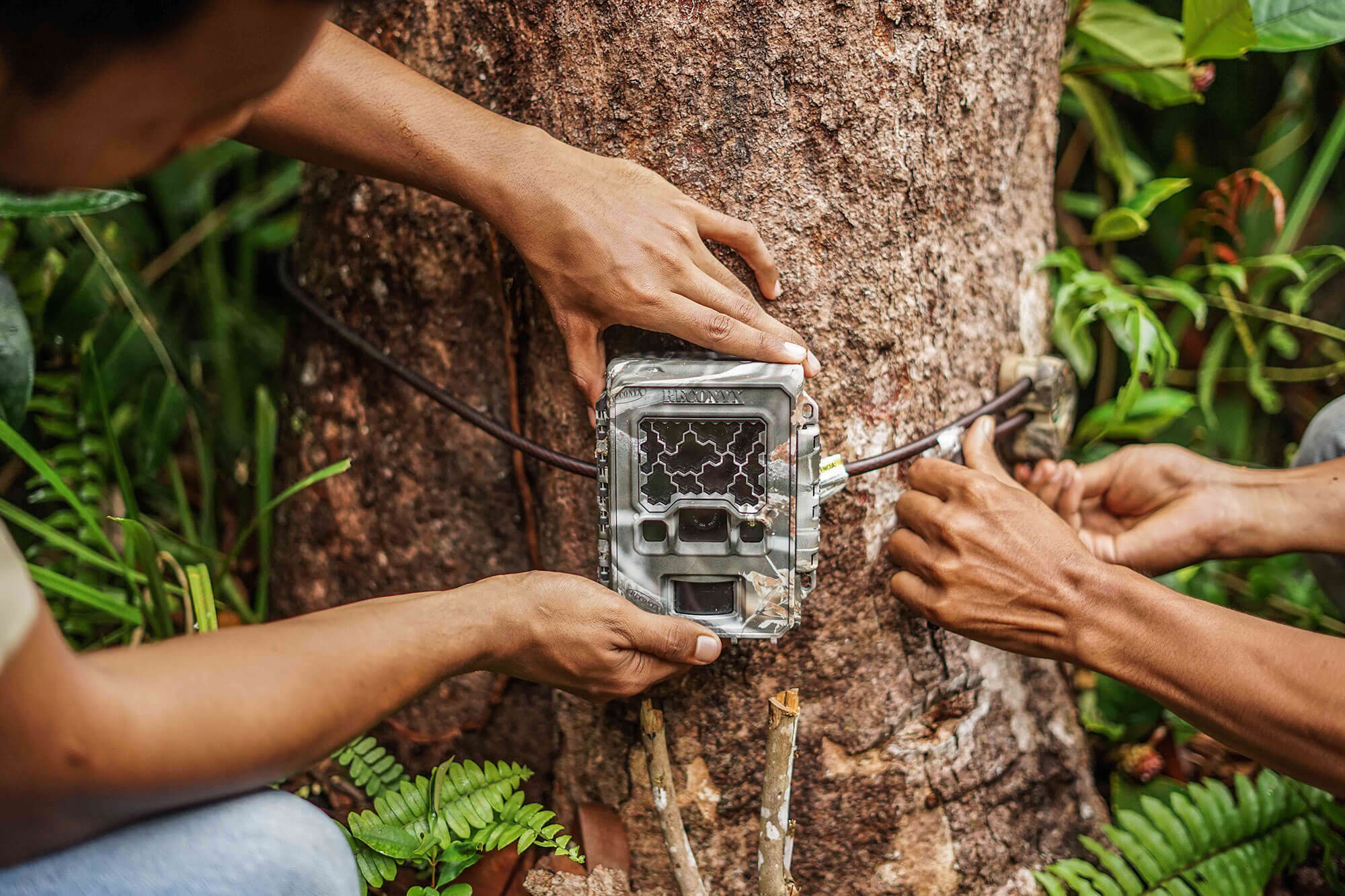
Camera Traps
RER monitors wildlife through remote camera traps, which allows us to obtain visual data to better understand the animals and their interaction with the forest.
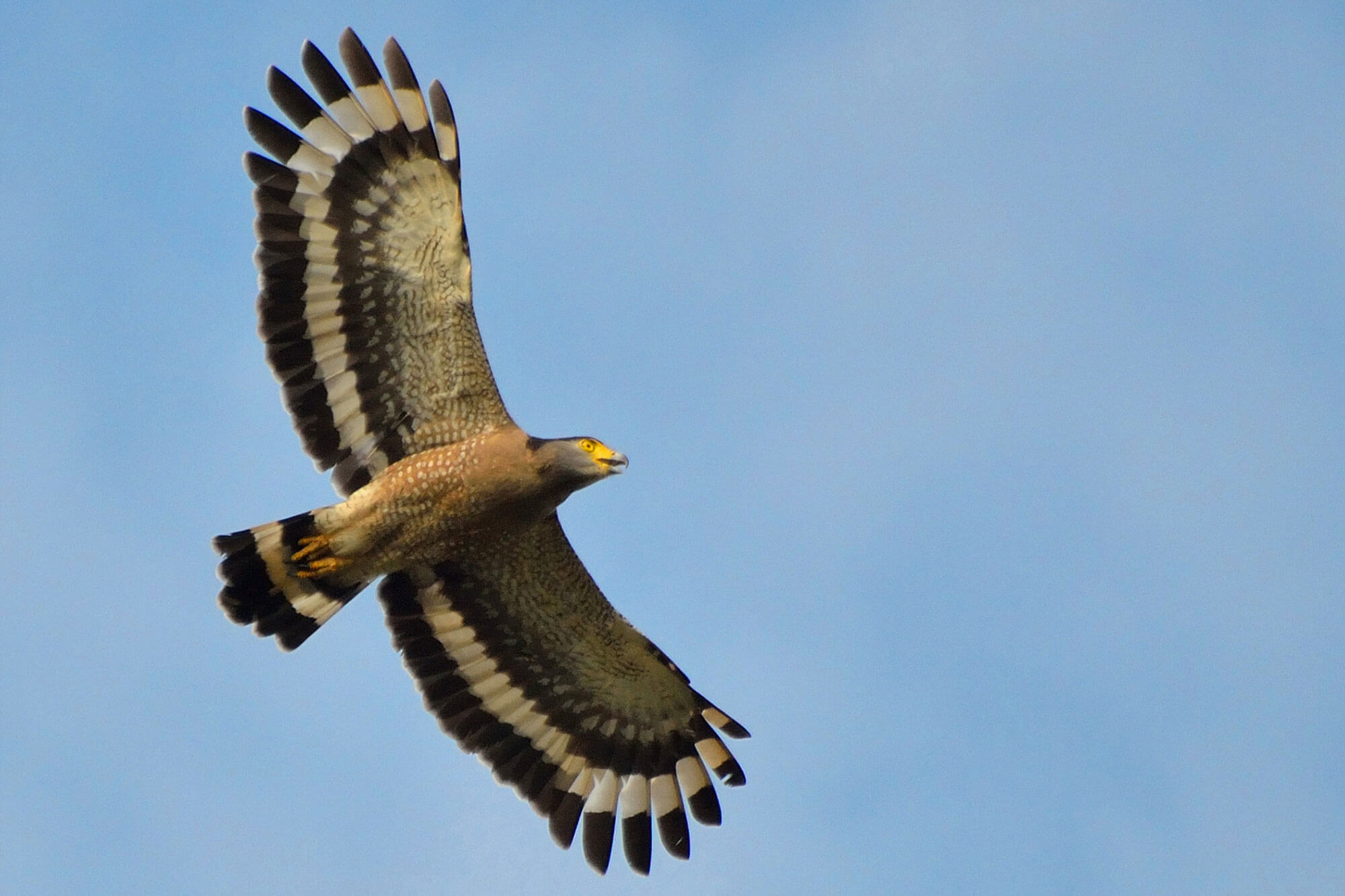
Bird Monitoring
RER routinely monitors birds in the area, and periodically participates in bird surveys such as the Asian Waterbird Census and Migratory Raptor monitoring to assess how migrating birds utilized the landscapes.
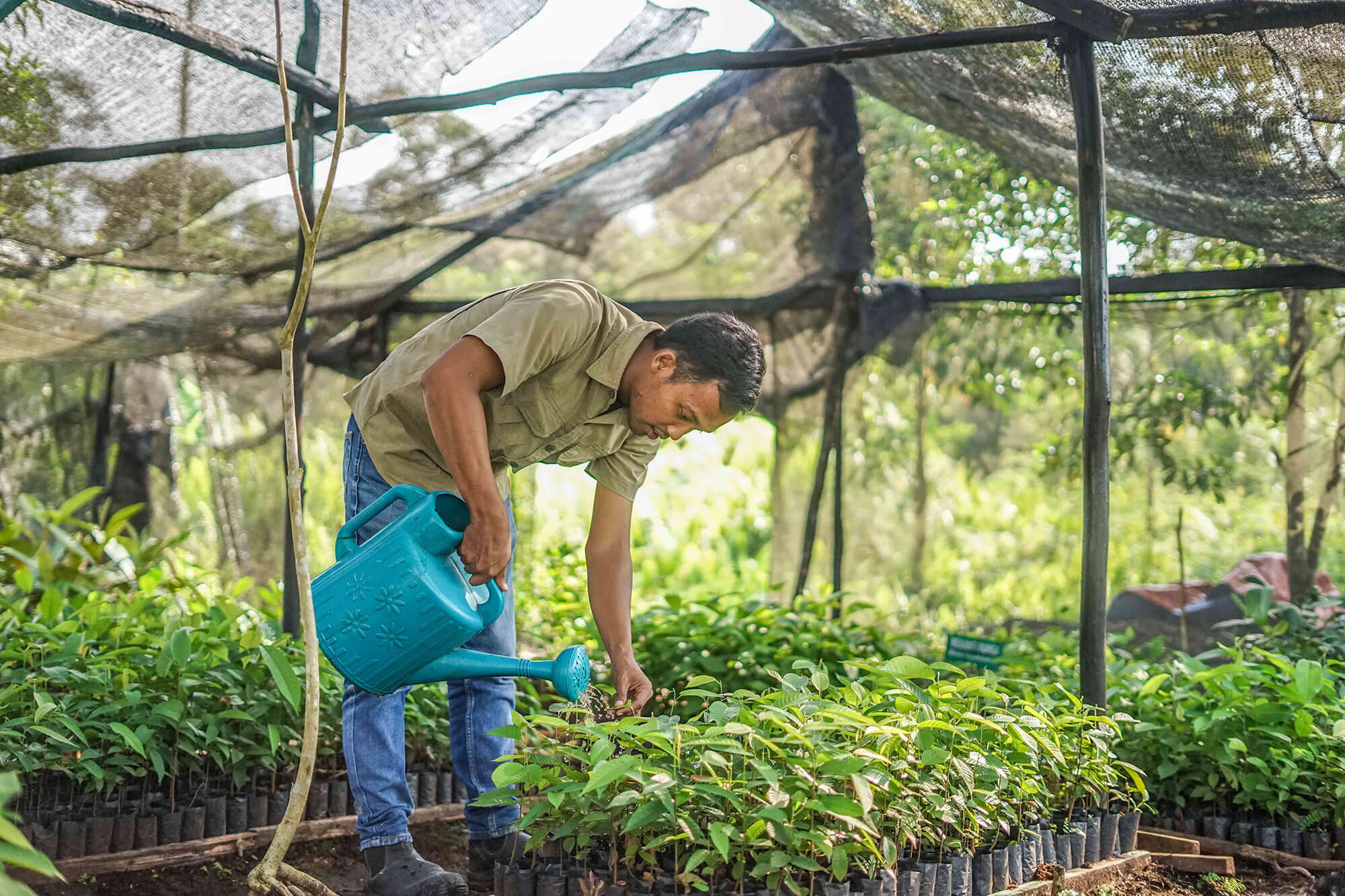
Native Tree Nurseries
RER builds mini nurseries to grow and nurture native tree seedlings that were collected from the forest to be later planted in areas in need of restoration.
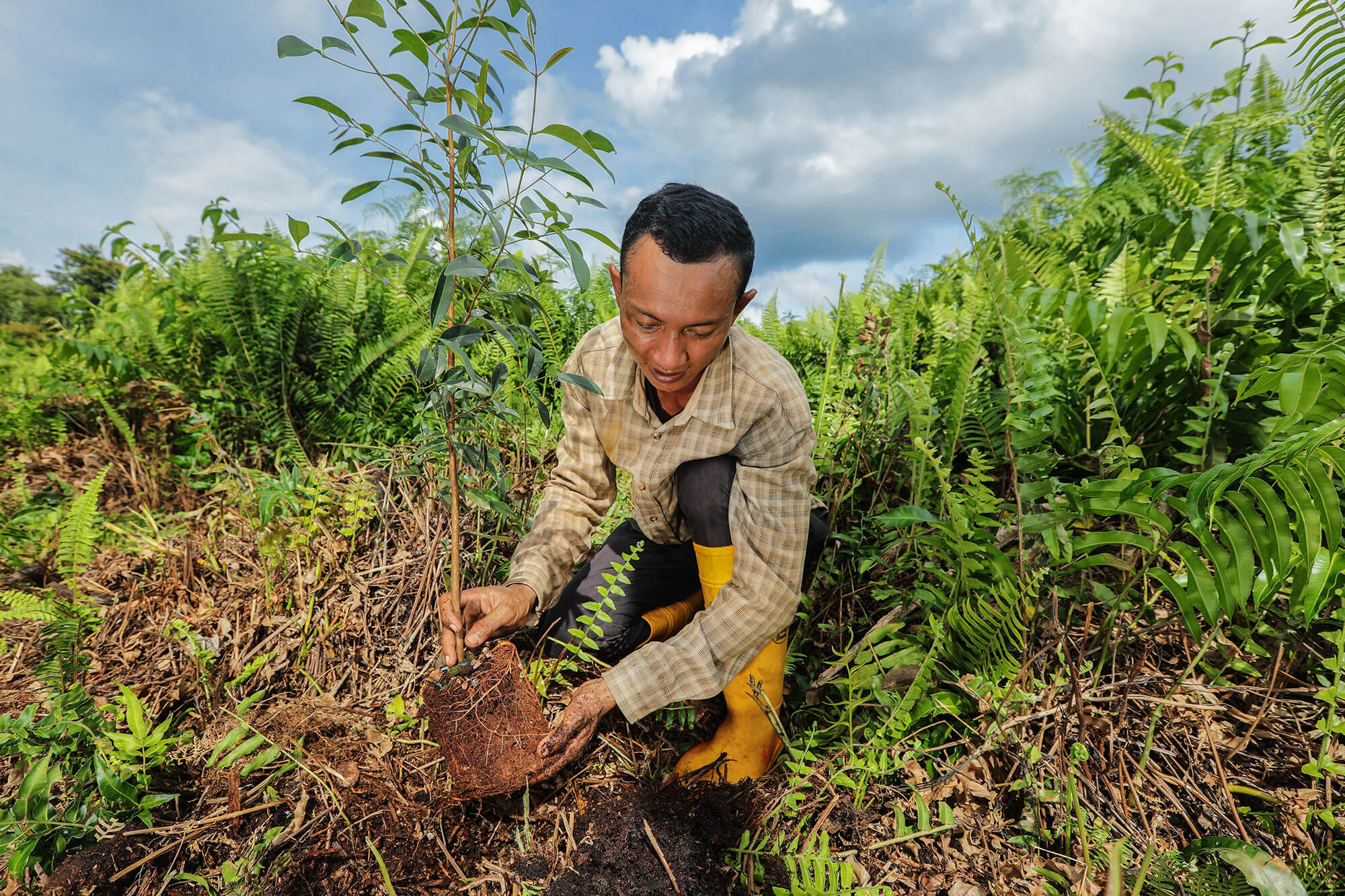
Restoration Planting
The RER team plants native tree species in areas that are too badly degraded to regenerate naturally.
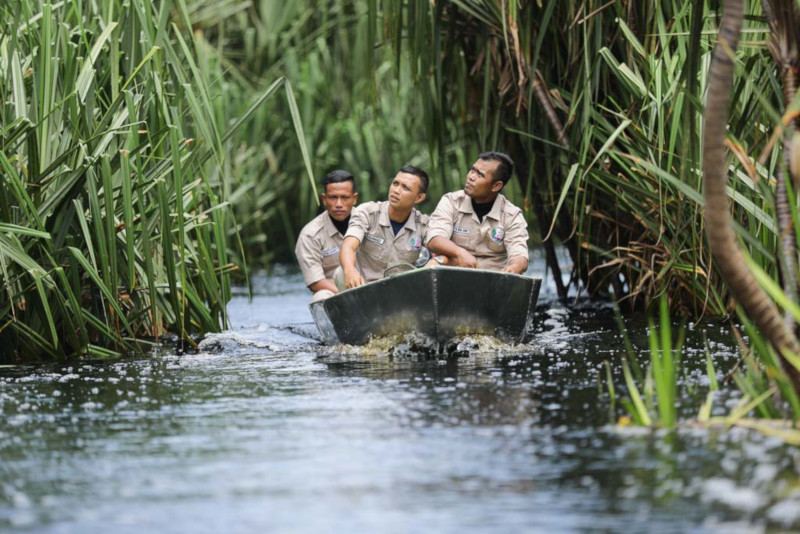
Ranger Patrol
Ranger patrols aims to prevent further anthropogenic disturbances that may interfere with the forest’s natural regeneration and RER’s restoration efforts.
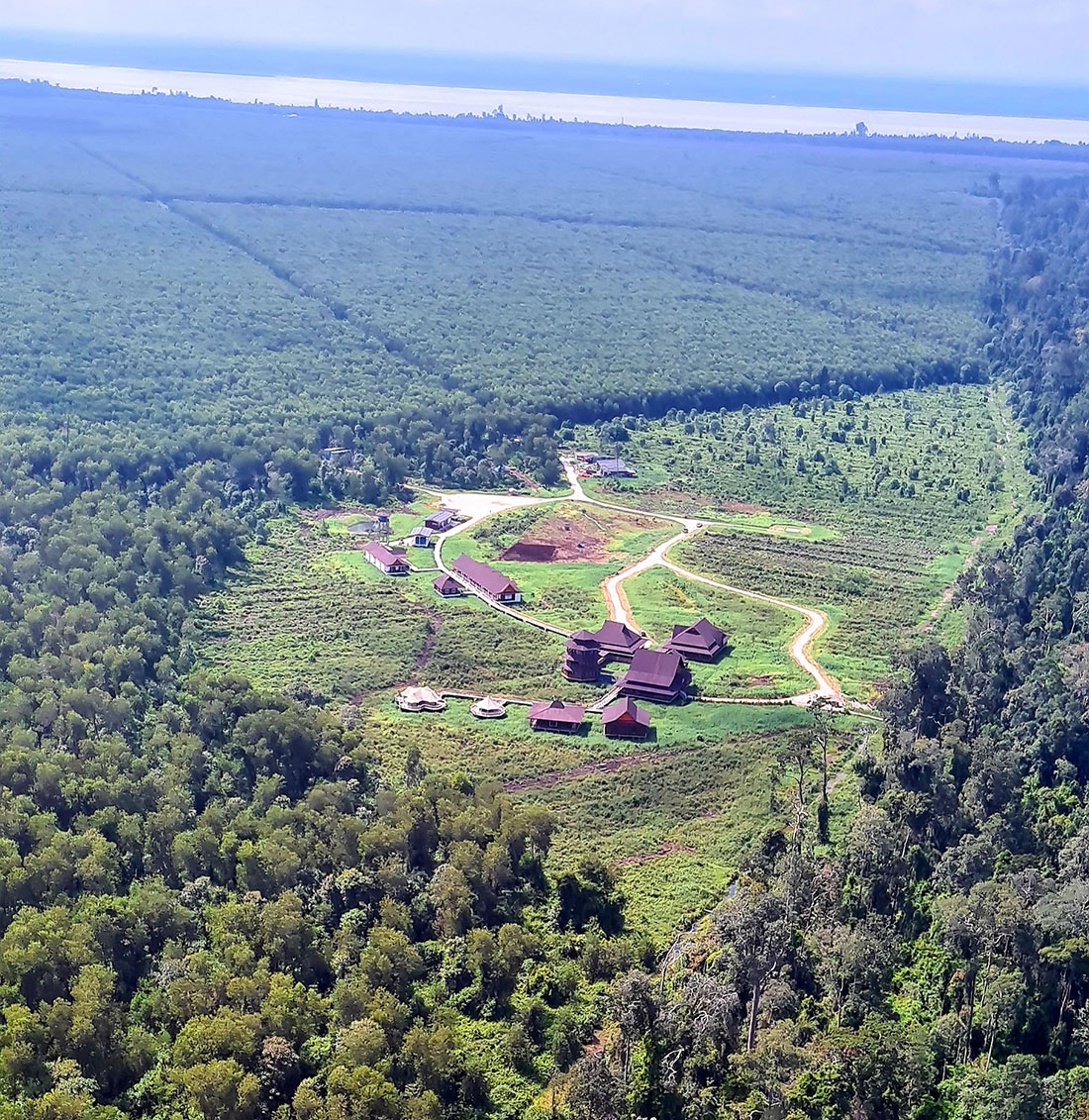
Access
Located near the RER restoration area in the middle of the Kampar Peninsula, Eco-Research Camp is a 30-minute helicopter flight or four-hour drive from Pangkalan Kerinci.
Its location provides strategic access to the restoration activities on the ground which will help visitors to really understand the challenges of managing a landscape twice the size of nearby Singapore
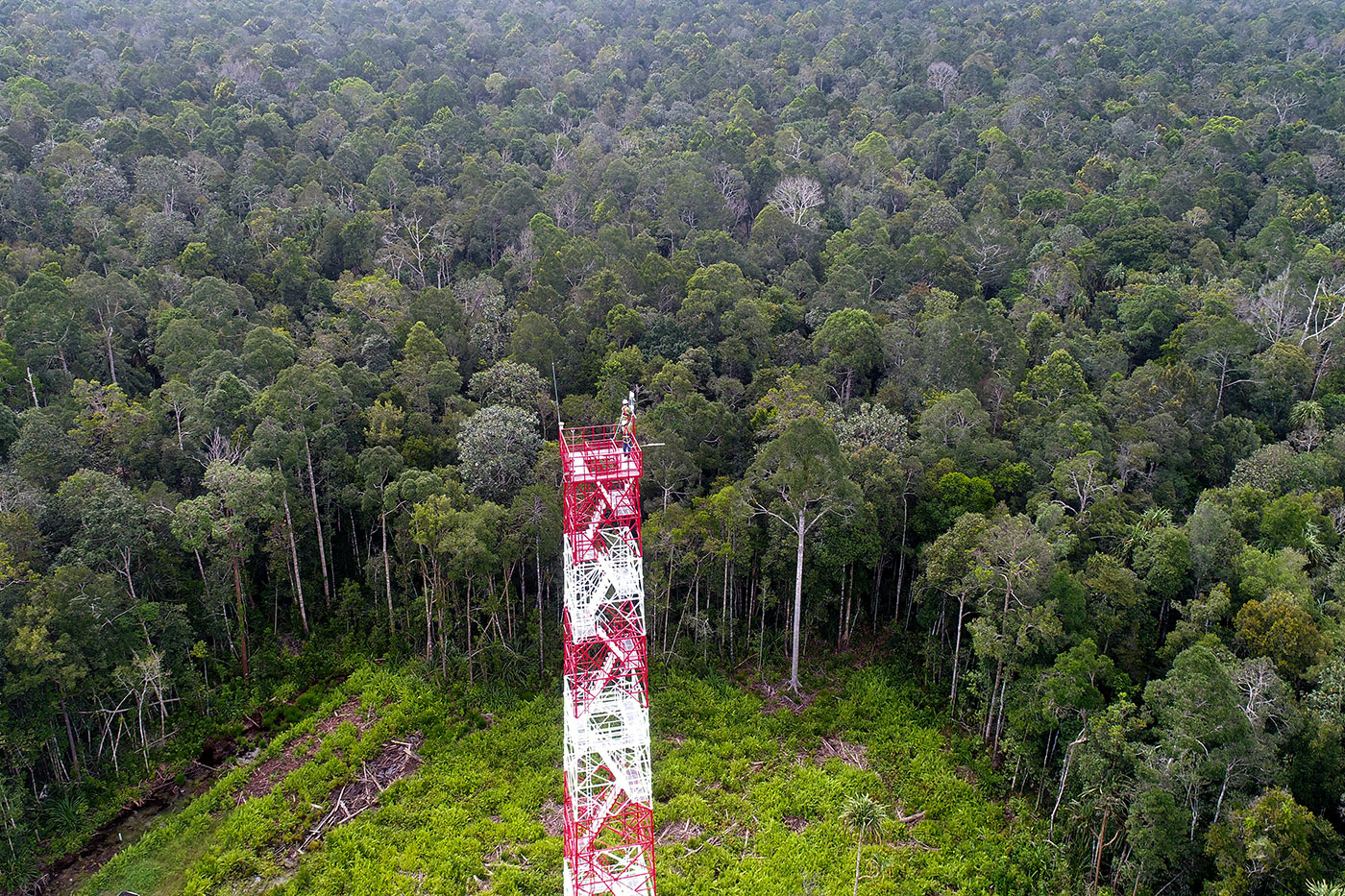
Green House Gas (GHG) Flux Tower
Located 18-km from Eco-Research Camp, visitors can learn more about APRIL Group’s science-based approach in measuring GHG flux in a natural peat swamp ecosystem.
This one of four GHG Flux towers operated by APRIL’s scientists to gather robust data on the exchange of GHG across four different landscapes.
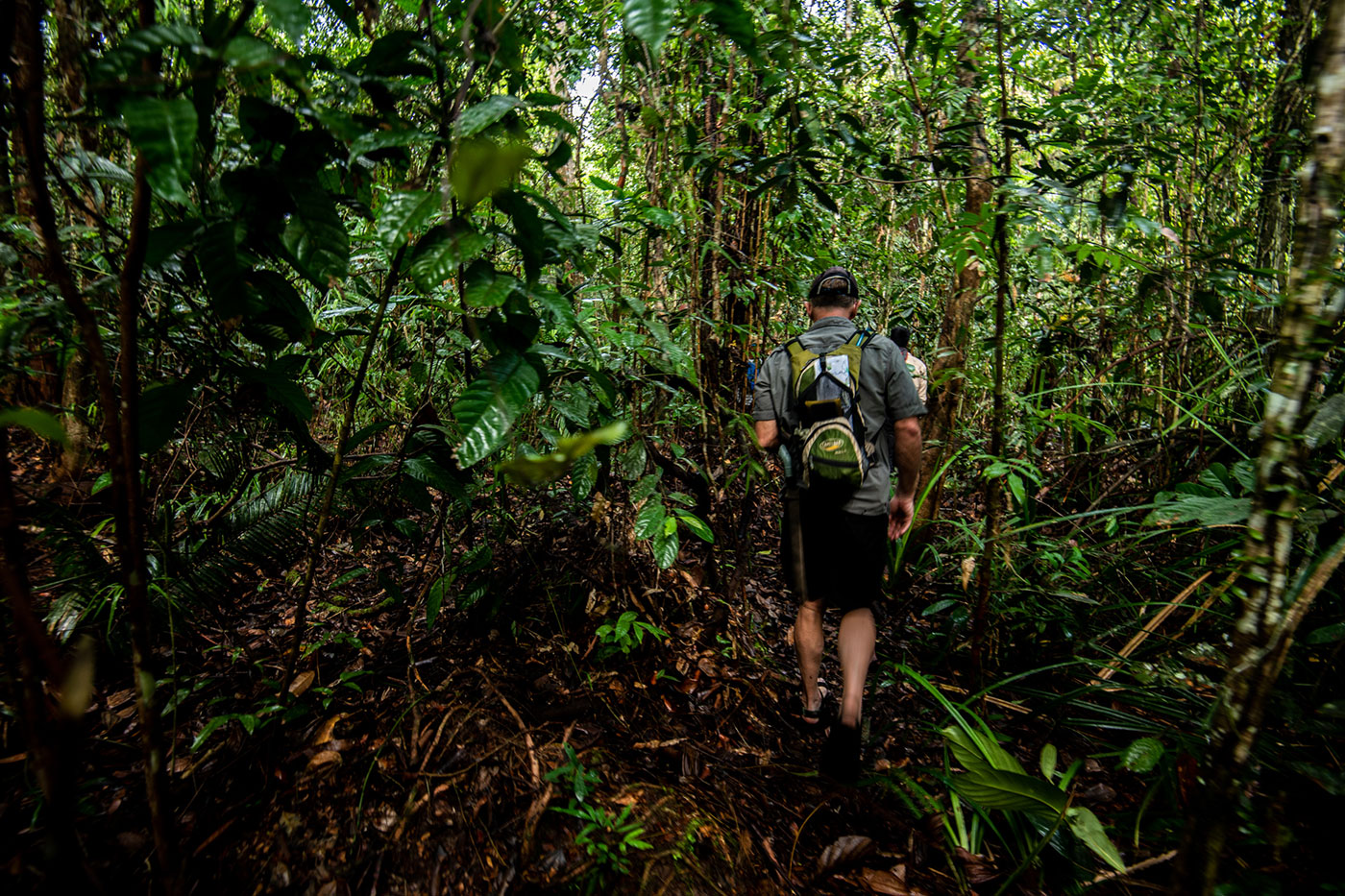
Natural Peat Swamp Forest
Located just 100 metres from APRIL Group’s High Conservation Value riparian forest, visitor can easily walk to the forest using our Eco-Trail to be immersed in a healthy natural peat swamp forest ecosystem.
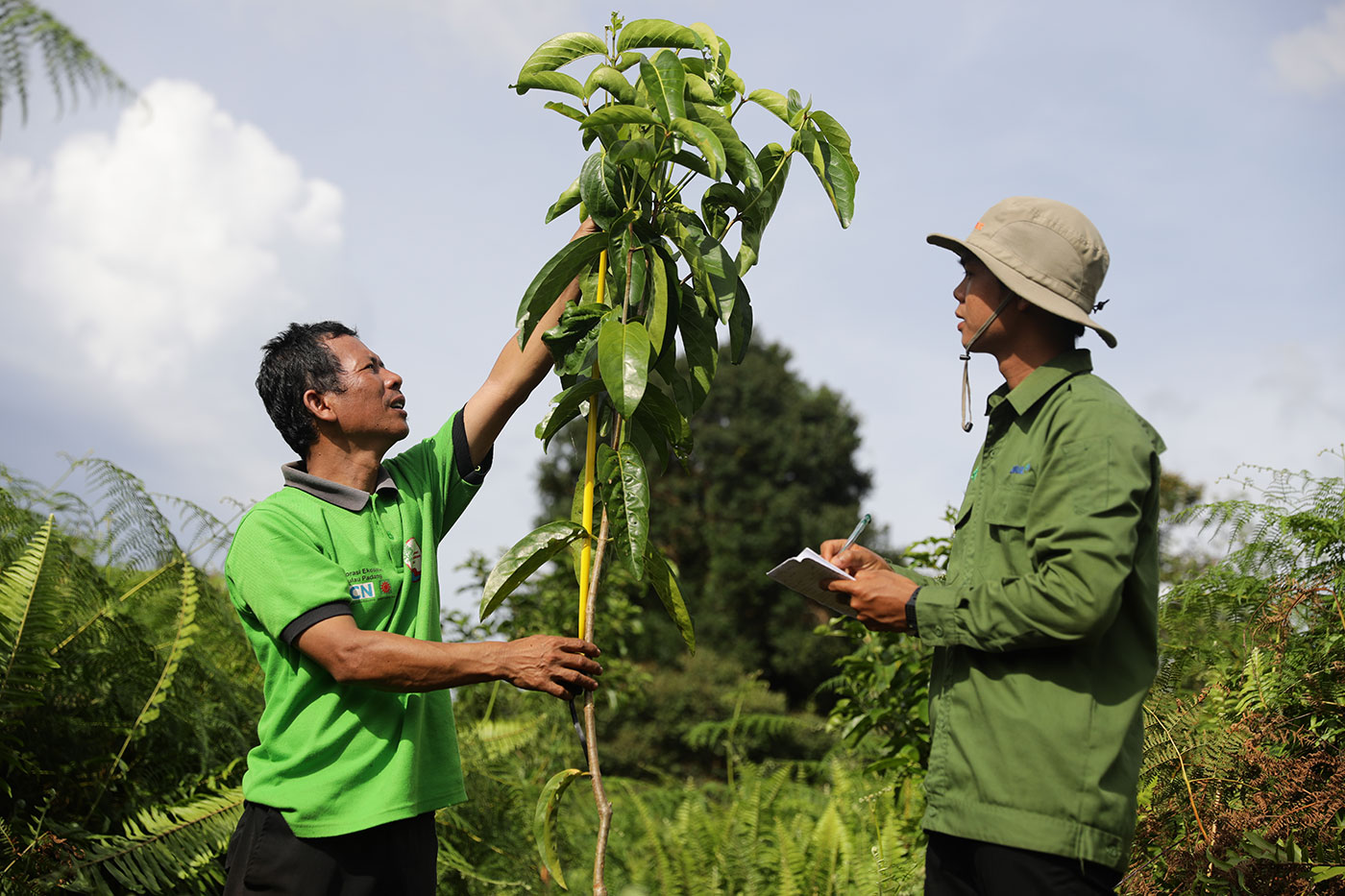
RER Restoration Areas
Visitors need to travel just 7km by boat or 15km by gravel roads to see RER’s restoration activities firsthand.
Facilities
Eco-Research Camp is built by integrating modern quality, local culture, and green, sustainable building concepts into an operational eco-design project customized for peatland.
Eco-Research Camp utilizes renewable energy sources, optimizes production of clean water, and minimizes water consumption, pollution and solid waste while providing comfortable accommodation for the RER team and visitors
Guest Facilities
Eco-Research Camp can accommodate up to 22 guests comfortably.
It’s equipped with four wi-fi guesthouses and two glamping tents, complete with 11 bedrooms, hospitality facilities, and outdoor activities.
Dining Room
Three-story dining tower allows visitors to enjoy an evening in an intimate forest atmosphere.
The building also serves as a watch tower for visitors who wants to enjoy the gleaming sunset or to simply do some birdwatching.
Employee Housing
Eco-Research Camp provides housing for around 48 RER employees. The facility’s close proximity to RER restoration areas enable RER team to work efficiently.
Solar Panels
All electricity for Eco-Research Camp is generated by an off-grid photovoltaic hybrid-electric system paired with two 45-kVA electric generators.
Water Treatment
We source our water directly from the peat soil, where it’s filtered to produce drinking water. After use it’s treated then used for watering our orchard.
Activities
Eco-Research Camp has a wide range of activities for visitors to learn more about
this spectacular ecosystem and our work to restore and conserve it.
River Trip
Explore the Serkap River on a traditional pompong or ketinting boat. We use an electric motor to minimize noise, meaning passengers get the chance to glimpse some of the hundreds of species that call this area home.
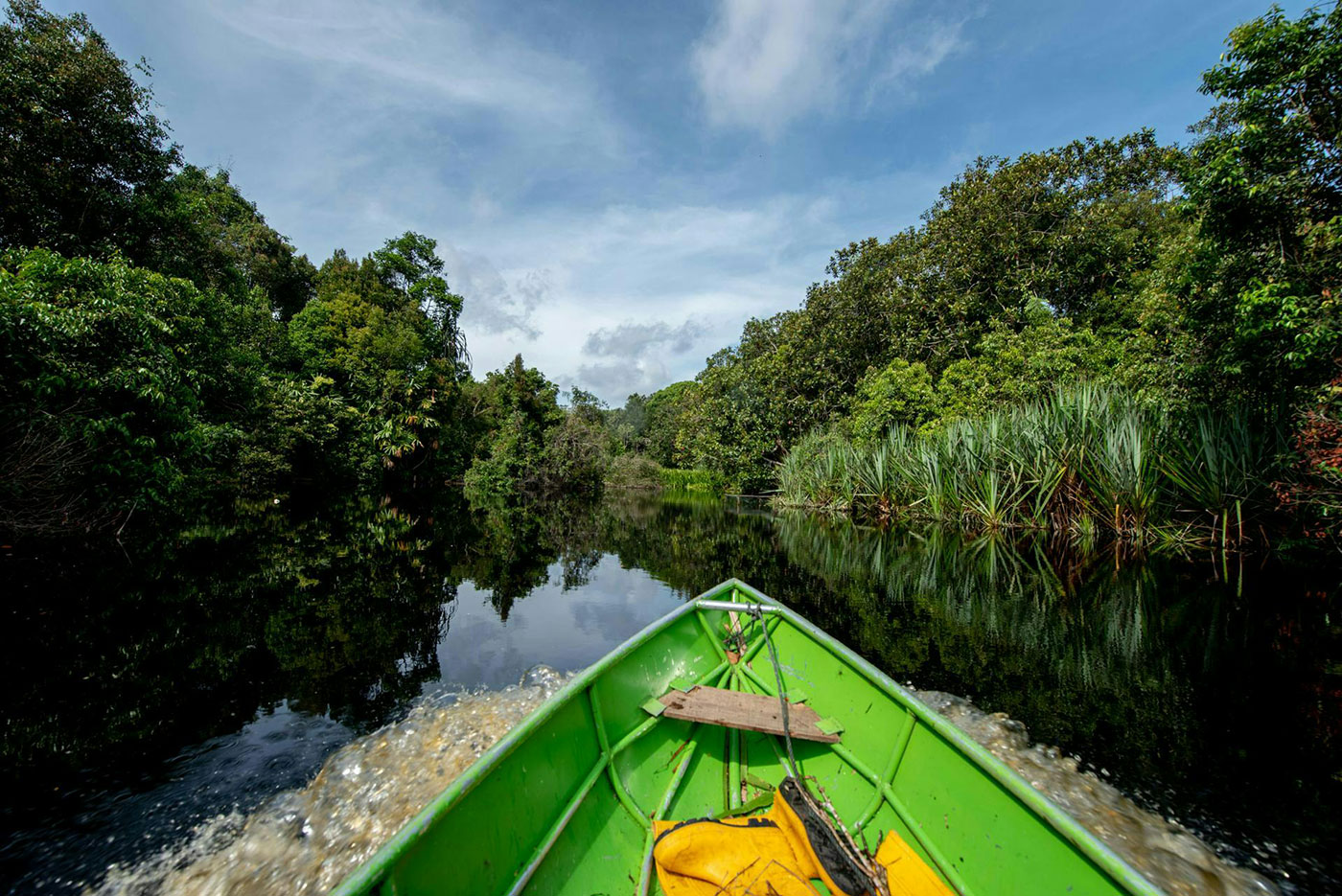
Kayaking
The facility also provides kayaks for visitors who wants to have a different experience while exploring the Serkap River and its inhabitants.
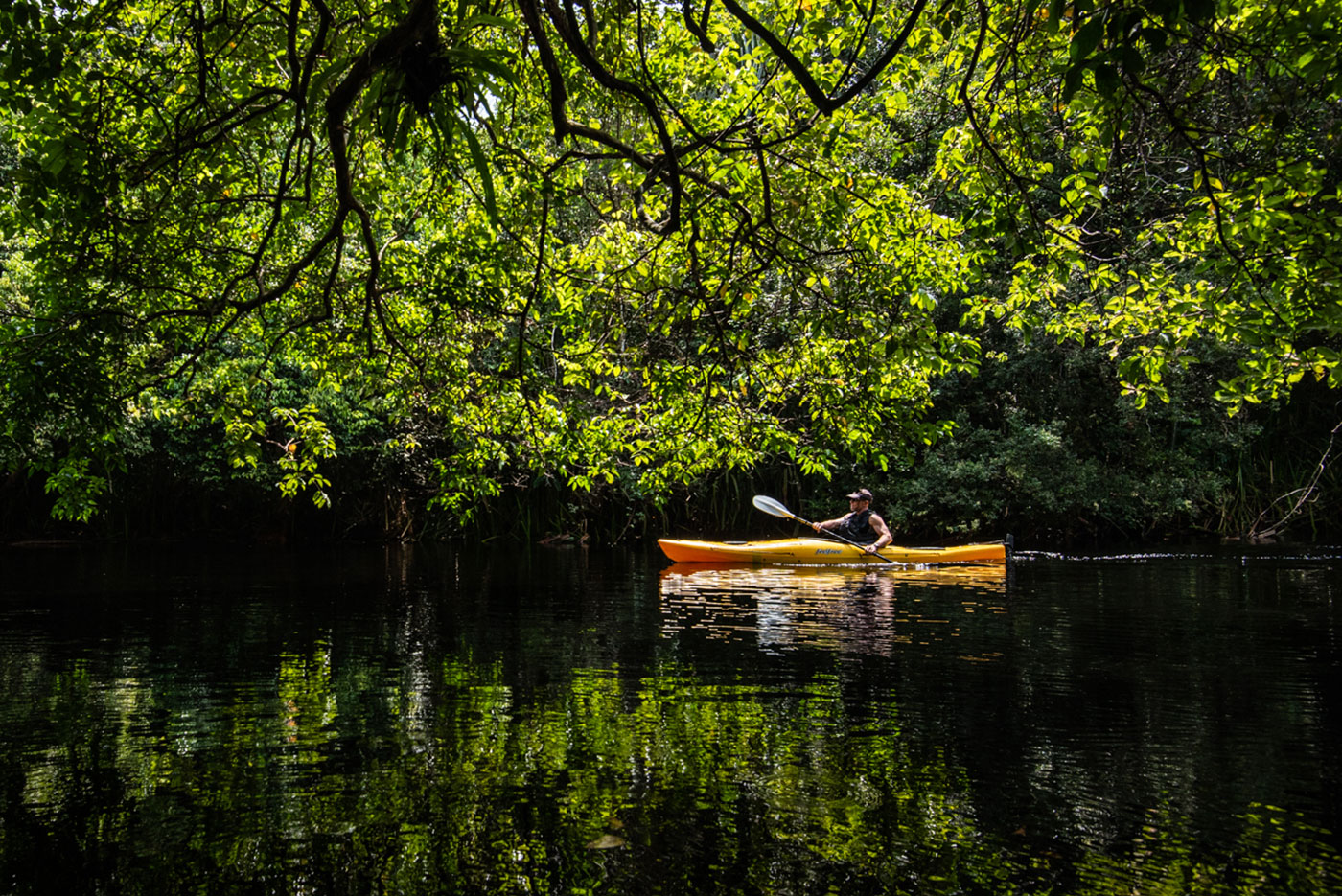
Eco-Trail
A 1.1 km elevated boardwalk that stretches from the Serkap River to the Eco-Research Camp lets visitors travel safely through the dense peat swamp forest ecosystem.
Along the trail visitors will find numerous wildlife and plants that are specific for this ecosystem.
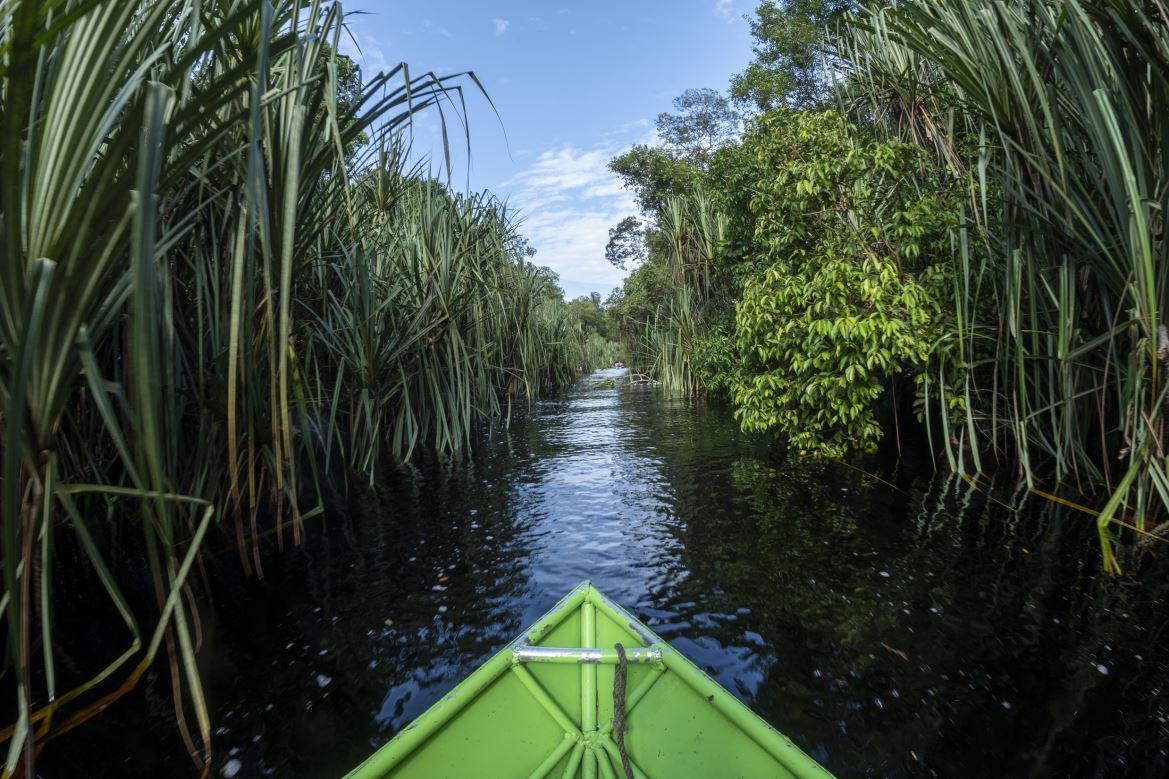
Birdwatching
Kampar Peninsula is home to more than 300 bird species, including the Helmeted Hornbill (Rhinoplax vigil) and migrating bird of prey such as Oriental Honey-Buzzard (Pernis ptilorhynchus).
Located right on the edge of the natural forest, Eco-Research Camp provides unique opportunities for birdwatching enthusiasts.
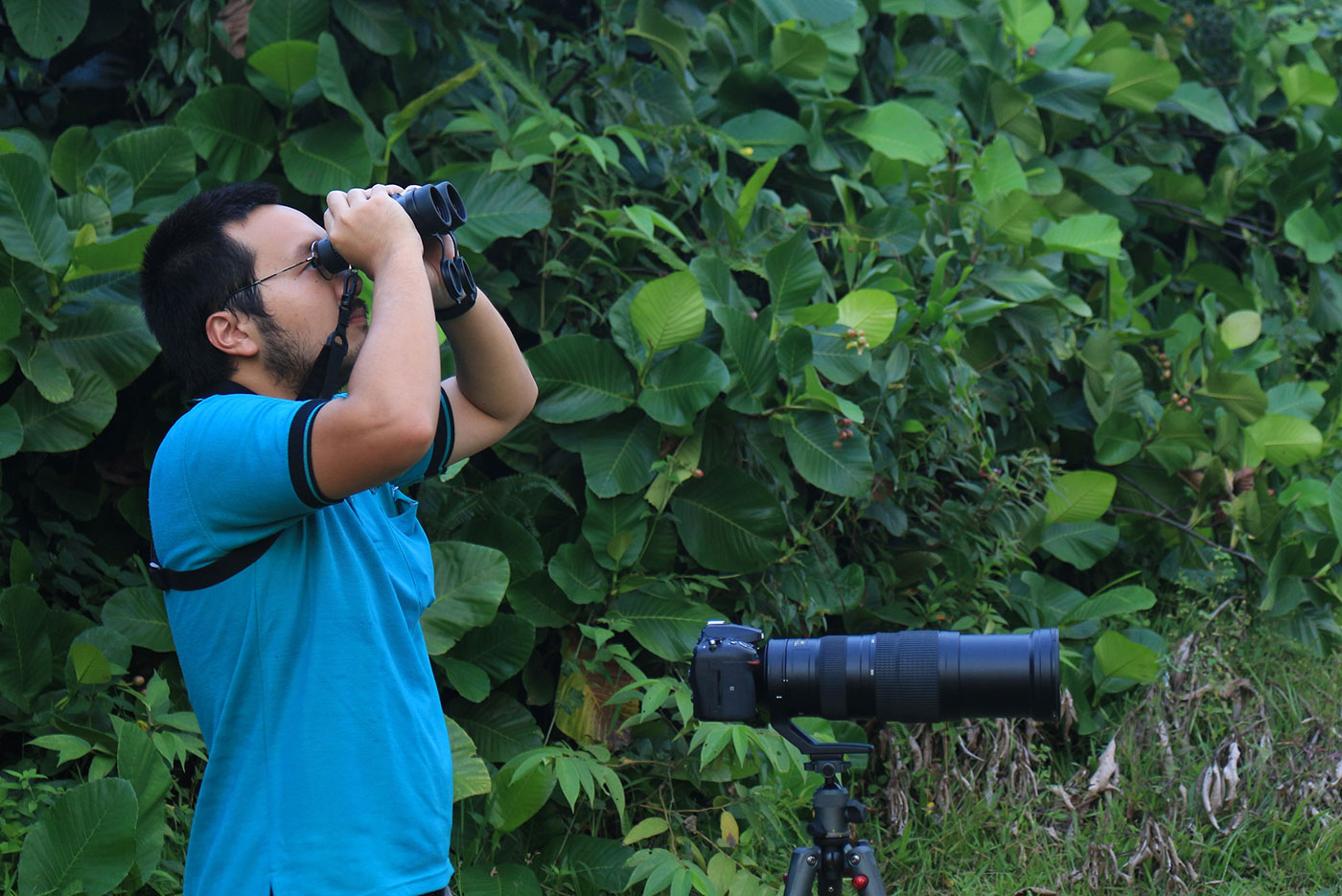
Wildlife Spotting
To date, RER has recorded 840 species of wildlife and plants living in the peat swamps forest of Kampar Peninsula and Padang Island.
Visitors can check off the species they spot as they explore. Perhaps you’ll even spot a rare or endangered animal during your stay?
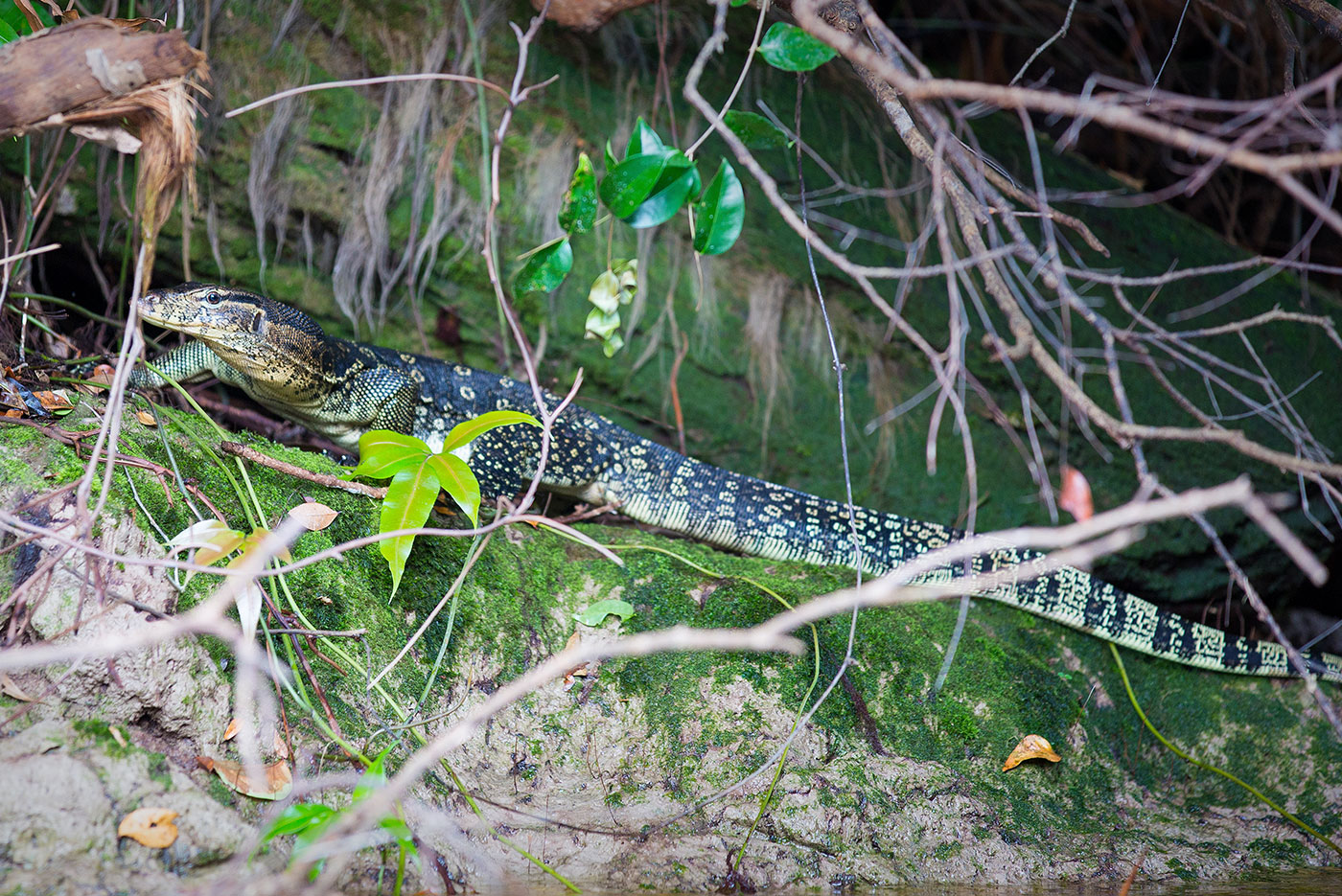
Gallery